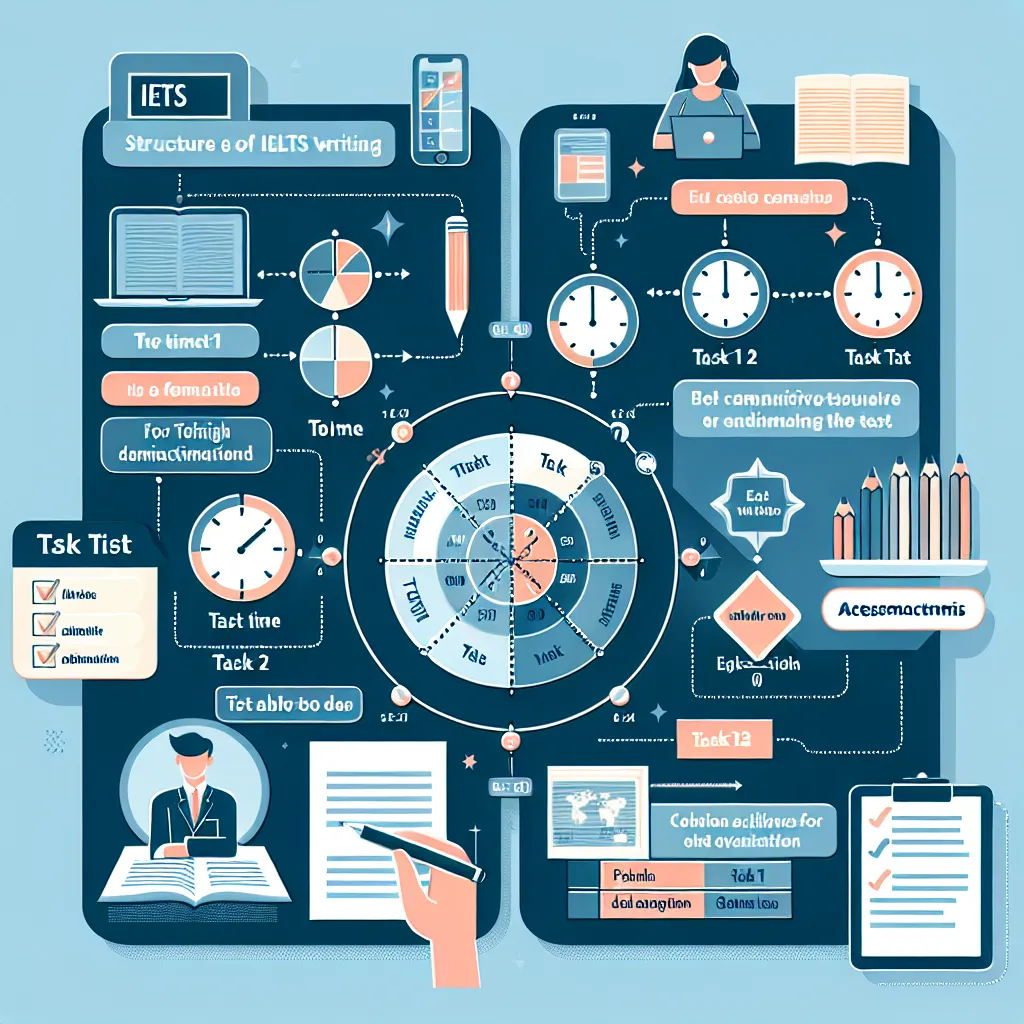Are you looking to boost your IELTS Writing score? Whether you’re aiming for a band 7 or striving for that elusive 8 or 9, this comprehensive guide will provide you with expert strategies and practical tips to enhance your writing skills and achieve your desired score in the IELTS Writing module.
Understanding the IELTS Writing Test
Before diving into improvement strategies, it’s crucial to understand the structure and requirements of the IELTS Writing test. The test consists of two tasks:
- Task 1 (20 minutes): Describe visual information (graph, table, chart, or diagram) in your own words.
- Task 2 (40 minutes): Write an essay in response to a point of view, argument, or problem.
Your writing is assessed based on four criteria:
- Task Achievement/Response
- Coherence and Cohesion
- Lexical Resource
- Grammatical Range and Accuracy

Key Strategies for Improving Your IELTS Writing Score
1. Practice Regularly
Consistent practice is the foundation of improvement in any skill, and IELTS Writing is no exception. Set aside dedicated time each day to work on writing tasks. Here’s a suggested practice routine:
- Write at least one Task 1 and one Task 2 response per week
- Time yourself to simulate test conditions
- Review and analyze your writing, focusing on areas that need improvement
2. Enhance Your Vocabulary
A rich vocabulary is crucial for achieving a high score in the Lexical Resource criterion. To expand your vocabulary:
- Learn new words in context through reading
- Create a personal vocabulary journal
- Use thesauruses to find synonyms for common words
- Practice using new words in your writing
Remember, it’s not just about knowing many words, but using them accurately and appropriately.
3. Improve Your Grammar
Grammatical Range and Accuracy is a key assessment criterion. To enhance your grammar:
- Review and practice using a variety of sentence structures
- Pay attention to verb tenses, subject-verb agreement, and article usage
- Learn to use complex structures like conditionals and relative clauses
- Proofread your work carefully to catch and correct errors
4. Master Task 1 Techniques
For Task 1, focus on:
- Analyzing the visual information quickly and accurately
- Identifying key trends and main features
- Using appropriate language to describe data (e.g., “significant increase,” “gradual decline”)
- Organizing your response logically (introduction, overview, details)
5. Develop Strong Task 2 Essay Writing Skills
For Task 2, concentrate on:
- Understanding different essay types (opinion, discussion, problem-solution, etc.)
- Planning your essay structure before writing
- Developing clear, well-supported arguments
- Using appropriate linking words and phrases for coherence
- Writing a strong introduction and conclusion
6. Time Management
Effective time management is crucial in the IELTS Writing test. Practice allocating your time wisely:
- Task 1: 20 minutes (including 5 minutes for planning)
- Task 2: 40 minutes (including 10 minutes for planning)
Stick to these time limits during practice to ensure you can complete both tasks within the given time on test day.
7. Analyze Model Answers
Studying high-scoring sample answers can provide valuable insights into what examiners are looking for. Pay attention to:
- How ideas are organized and presented
- The range of vocabulary and grammar used
- How the writer addresses all parts of the task
8. Seek Feedback
Getting feedback on your writing is essential for improvement. Consider:
- Joining IELTS preparation courses
- Finding a study partner or tutor
- Using online forums or communities for peer review
- Investing in professional writing evaluation services
9. Read Widely
Reading extensively can significantly improve your writing skills by exposing you to various writing styles, vocabulary, and ideas. Focus on:
- Academic texts and journals
- News articles from reputable sources
- Opinion pieces and essays
10. Use IELTS-specific Resources
Utilize resources designed specifically for IELTS preparation:
- Official IELTS practice materials
- IELTS writing task books
- Online IELTS writing courses and workshops
Common Pitfalls to Avoid
Be aware of these common mistakes that can lower your IELTS Writing score:
- Not addressing all parts of the task
- Writing off-topic or irrelevant information
- Using memorized phrases or essays
- Neglecting to proofread for errors
- Writing too much or too little (aim for 150 words in Task 1 and 250 words in Task 2)
Next Steps for IELTS Writing Success
Now that you have a comprehensive strategy for improving your IELTS Writing score, it’s time to put these tips into action:
- Create a study schedule that incorporates regular writing practice
- Set specific goals for vocabulary and grammar improvement
- Start a writing journal to track your progress
- Seek out opportunities for feedback on your writing
- Stay motivated by reminding yourself of your IELTS score goals
Remember, improving your IELTS Writing score takes time and dedication. Be patient with yourself and celebrate small victories along the way. With consistent effort and the right strategies, you can achieve the score you’re aiming for.
We encourage you to share your own IELTS Writing experiences and tips in the comments below. For more IELTS preparation advice, check out our other articles on reading, listening, and speaking skills.